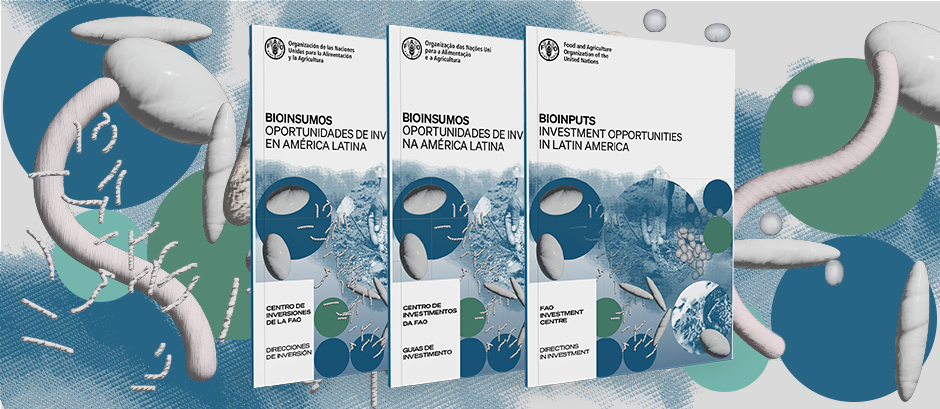Investment breakthroughs for bioinputs in Latin America

The FAO Investment Centre has published a new report, Bioinputs: Investment Opportunities in Latin America. The report examines the potential role of bioinputs in the region’s transition towards more sustainable agrifood systems.
The agriculture sector in Latin America and the Caribbean is facing critical challenges. Climate change, increasing soil degradation and biodiversity loss are posing serious risks to the agrifood sector.
Faced with these challenges and the escalating costs of conventional fertilizers, the sector is exploring affordable, cost-effective and sustainable alternatives to maintain production levels.
Agricultural bioinputs are products of plants, animals, or microbes, capable of enhancing crop productivity, quality or health. They are often used as supplements or natural alternatives to more widely used synthetic agrochemicals.
“The use of bioinputs has been shown to improve soil structure, enhance ecosystem sustainability and minimize impacts on human health,” said Leandro Bullor, FAO Investment Centre economist and co-author of the report. “This publication highlights their economic viability and considerable investment potential, alongside their social and environmental benefits.”

Promoting investments in bioinputs
Over the past five years, the bioinputs market in Latin America has expanded significantly, with an average annual sales growth rate of 15 percent.
The publication shows that investing in the development, production and adoption of bioinputs can be useful – particularly where farmers are focusing on agroecology, circular economy, bioeconomy or regenerative agriculture.
Countries in the Latin America region and international financial institutions including the World Bank, the Inter-American Development Bank (IDB), and the International Fund for Agricultural Development (IFAD) are already integrating and promoting investments in bioinputs in their agricultural projects, to drive transformation in the sector.
Bioinputs are also compatible with increasingly stringent import requirements of key markets including the United States and the European Union (EU).
EU initiatives, including the European Green Deal and its Farm to Fork Strategy, anticipate further reductions in permitted levels of chemical pesticides. This is an impetus for countries which export agricultural produce to the EU to progressively adapt and transform their agricultural practices.

Advancing the agroecological transition
This publication paves the way for governments in the region and international financial institutions to actively promote investments in the development of agricultural bioinputs. It also calls for policies and regulatory frameworks that facilitate their adoption and use.
"Investments in agrifood systems must be sustainable, resilient and efficient – and in this endeavour, bioinputs can play a significant role,” said Bullor. “We should anticipate a future in which bioinputs become increasingly relevant, strategically supplementing agrochemicals.”
Investing in the adoption of bioinputs can help advance the agroecological transition, fulfilling global environmental commitments and forging a greener path toward agricultural sustainability and resilience in Latin America and beyond.
